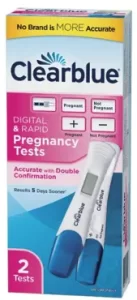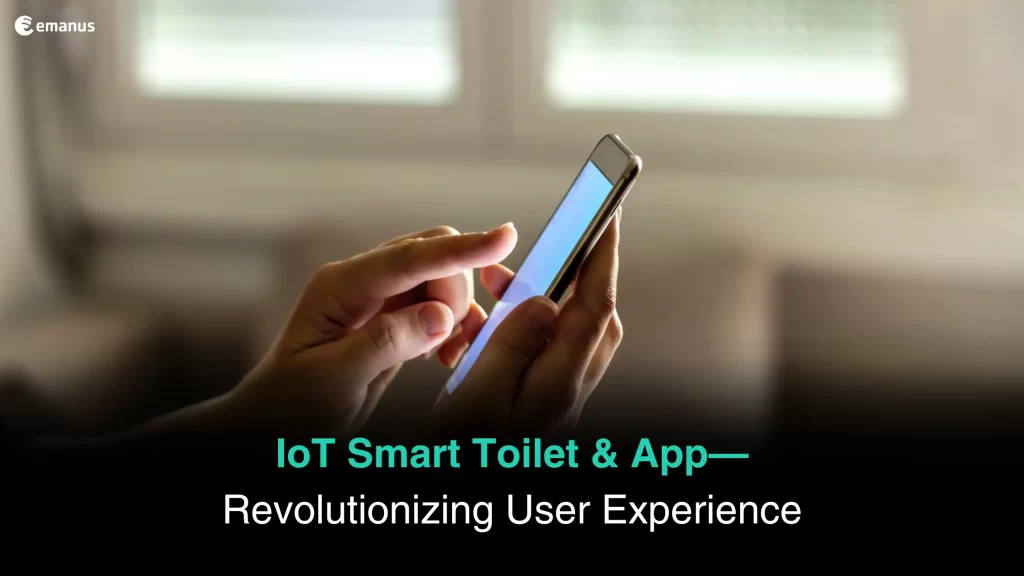In the evolving landscape of healthcare technologies, Bender Tech’s innovative IoT based Smart Toilet stands out as a transformative solution for non-invasive urinalysis testing. This groundbreaking device integrates biosensors with IoT technology to provide real-time, passive data acquisition of urinary biomarkers from home settings.
The solution promises advancements in chronic disease management and personalized nutrition. This case study explores the commercialization journey of this technology, highlighting its potential impact, market positioning, and challenges.
The Problem
Chronic diseases like hypertension and kidney disorders affect millions globally, creating a growing demand for accessible, accurate, and cost-effective diagnostic tools. Traditional diagnostic methods require laboratory visits, specialized equipment, and can be invasive, costly, and time-consuming. These barriers delay timely interventions, leaving gaps in managing patient health effectively.
The Solution: IoT Based Smart Toilet
Bender Tech is the Best Smart Toilet device that offers a novel approach to addressing these challenges. By leveraging electrochemical spectroscopy and advanced biosensors, this IoT-enabled device measures dietary and physiological biomarkers in urine. Key features include:
- Non-invasive Testing:
Eliminates the need for manual urine collection. - IoT Integration:
Transfers data wirelessly to smartphones or cloud platforms for analysis. - Continuous Monitoring:
Provides real-time health monitoring. - Targeted Health Applications:
Focused on hypertension management and dietary monitoring.
Technology Overview
The IoT Based Smart Toilet is a groundbreaking solution capable of conducting non-invasive, passive urinalysis testing from homecare settings. Equipped with biosensors and mechatronics, the system quantifies biomarkers in urine to monitor health parameters like sodium intake and hydration levels.
Key Features:
- Real-Time Monitoring:
Tracks dietary and physiological biomarkers continuously. - Wireless Data Transmission:
Data collected is transmitted to cloud storage for analysis, enabling integration with mobile and wearable devices. - FDA-Level Accuracy:
Matches diagnostic precision found in professional lab settings.
This system is designed for a dual-use model: as a device manufacturer selling directly to healthcare providers and as part of an integrated disease management platform targeting conditions like hypertension.

Bender Tech Product
Market Landscape
Market Opportunity
The global urinalysis market is projected to reach $4.6 billion by 2024. The increasing prevalence of hypertension—affecting over 103 million U.S. adults—underpins the demand for personalized health monitoring solutions.
Competitive Landscape
Major Competitors:
- Inui Health: Smartphone-enabled diagnostic tools.
- Bisu: Advanced electrolyte tracking devices.
- Vivoo: Test strips coupled with personalized nutritional advice.
Table 1: Key Market Players
| Company Name | Product | Price (USD) | Unique Feature |
| Inhui health | Smartphone urinalysis | $34.99 (3-testpack) | Quick results via smartphone |
| Bisu | Electrolyte tracker | $100 (device) | Measures multiple biomarkers |
| Vivoo | Wellness assistant | $9.90/month | Personalized nutrition advice |

Table 2: Market Projections
| Market Segment | Estimated Value (2024, USD) | CAGR |
| Global Urinalysis Market | $4.6 billion | 7.6% |
| Home Diagnostic | $2.31 billion | 10.2% |
| IoT Healthcare applications | $128 billion | 14.5% |
Table 3: Competitive Comparison
| Feature | IoT Based Smart Toilet | Vivoo | Scanwell Health |
| Continuous Monitoring | ✔️ | ✖️ | ✖️ |
| Multi-User Capability | ✔️ | ✖️ | ✖️ |
| FDA- Approved Accuracy | Pending | ✔️ | ✔️ |
While these competitors offer portable solutions, the IoT Based Smart Toilet distinguishes itself by:
1. Providing continuous monitoring.
2. Reducing human error associated with dipstick-based urinalysis.
3. Offering a broader application range, including chronic disease management and dietary assessments.
Pricing Strategy
Projected device price: $100-$200. Annual subscription: $180 (including sensors and monitoring services). The pricing aligns with existing solutions but offers higher value due to its advanced capabilities.
Value Proposition
For Healthcare Institutions
- Labor cost savings:
Automating sample collection, analysis, and reporting reduces manual intervention. - Improved patient outcomes:
Continuous monitoring enables early detection and proactive management of chronic conditions. - Streamlined workflows: I
ntegration with existing EMR systems facilitates data-driven decision-making.
For Patients
- Convenience:
Passive testing eliminates the need for frequent clinic visits. - Personalized insights:
Real-time feedback empowers users to make informed dietary and lifestyle choices. - Enhanced privacy:
Secure data transmission ensures compliance with HIPAA and other privacy regulations.
Commercialization Strategy
- Market Entry Pathways:
- Medical Institutions: Hospitals, clinics, and assisted living facilities as primary adopters.
- Direct-to-Consumer: Targeted at health-conscious individuals and those managing chronic conditions.
- Regulatory Compliance: FDA approval is critical for market penetration. Precedents set by Healthy.io and Scanwell Health indicate a feasible pathway for obtaining 510(k) clearance.
- Partnerships and Funding:
- Collaboration with service providers for home installations (e.g., companies specializing in medical equipment setup).
- Seeking venture capital through entities like Cardeation Capital.
- FDA Approval:
- Secure regulatory clearance for market entry and healthcare adoption.
- Strategic Partnerships:
- Collaborate with organizations like the American Heart Association and LabCorp.
- Investor Engagement:
- Target venture capitalists like Johnson & Johnson Innovation to fund development and scaling.
- Market Differentiation:
- Highlight labor savings, real-time data acquisition, and enhanced patient outcomes.
Technical Differentiation
The IoT Based Smart Toilet employs electrochemical spectroscopy for unparalleled accuracy in detecting biomarkers, surpassing traditional dipstick methods.
Advantages:
- Multi-User Capabilities:
Identifies and segregates data for different users. - Contamination Avoidance:
Innovative design mitigates interference from residual contaminants. - HIPAA Compliance:
Ensures secure data handling and patient privacy.
Applications and Expansion Potential:
Primary Use Case:
- Hypertension Management:
Tracks sodium intake, aiding early intervention and better disease management outcomes.
Additional Applications:
- Dietary Assessments:
Detects nutrient deficiencies and provides personalized dietary recommendations. - Chronic Disease Monitoring:
Applicable for conditions like cardiovascular disease, chronic kidney disease, and diabetes.
Challenges and Mitigation
Competition With over 100 companies exploring point-of-care diagnostics, differentiation is key. Bender Tech’s reliance on electrochemical spectroscopy—a more advanced technique—provides a competitive edge.
Regulatory Hurdles Navigating FDA and EU Medical Device Regulations will require robust clinical validation. Early engagement with regulatory bodies and adherence to established standards can streamline this process.
Market Adoption Resistance to new technology is common in healthcare. Bender Tech can mitigate this through:
- Demonstrating cost-effectiveness in pilot programs.
- Highlighting labor-saving benefits for institutions.
- Building trust with end-users through transparent data handling and privacy measures.
Recommendations
- Focus on Hypertension Management:
Leverage the platform’s ability to monitor sodium levels as a unique selling point. This niche aligns with growing health concerns and regulatory approval pathways. - Invest in Partnerships:
Collaborate with large labs (e.g., LabCorp), advocacy organizations (e.g., the American Heart Association), and home healthcare providers to accelerate market entry. - Enhance User Experience:
Integrate additional features, such as multi-user discrimination and urine volume measurement, to meet end-user needs and institutional requirements. - Develop a Scalable Model:
Adopt a modular design that allows integration with existing smart-home ecosystems. This approach can expand the product’s applicability across different market segments.
Conclusion
Bender Tech’s IoT based Smart Toilet represents a paradigm shift in personalized healthcare. By addressing critical gaps in dietary and chronic disease management, the platform offers immense potential for improving patient outcomes and reducing institutional costs. Strategic focus on regulatory compliance, market validation, and partnership development will be pivotal in realizing this potential.
As the health-tech industry continues to embrace IoT innovations, Bender Tech is well-positioned to lead the charge, transforming passive health monitoring into a cornerstone of modern medicine.






